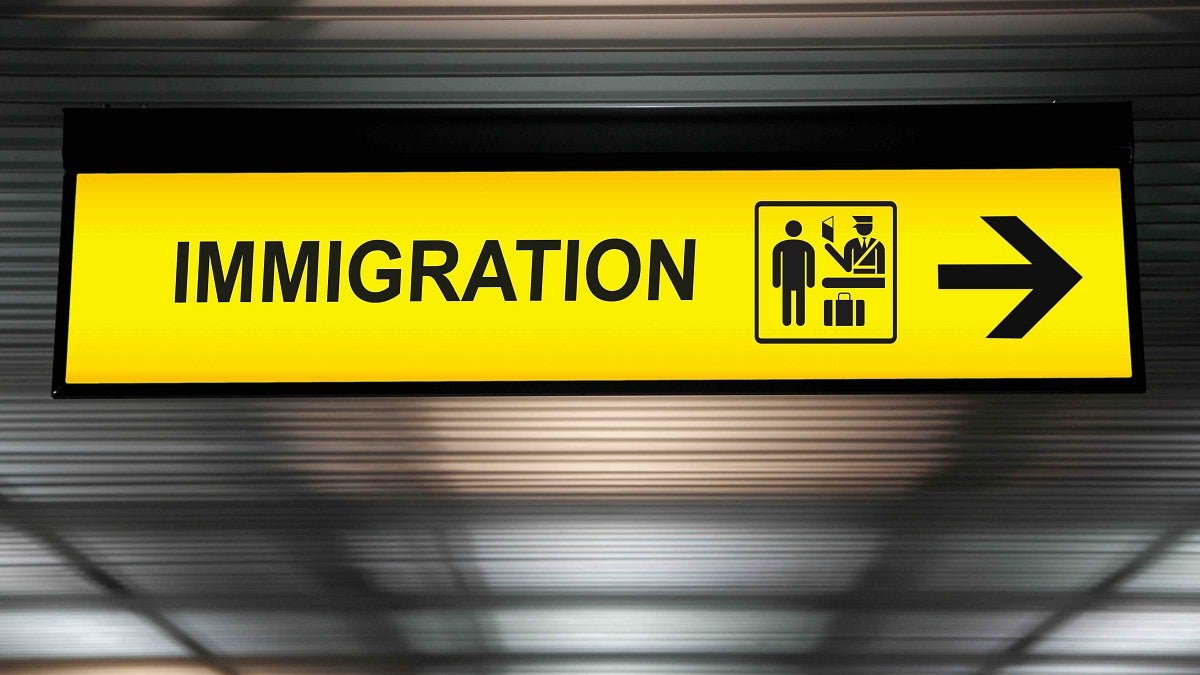
September 19, 2024 - 12:00pm
Immigration is a part of the United States’s DNA, but it’s long been a contentious political subject. Economic models have found immigration to be a fiscal cost, but a recent study by a University of Oregon economist challenges these findings, showing that low-skilled immigrants on average contribute an additional $750 in annual fiscal benefits not previously accounted for.
Mark Colas, an economics assistant professor at the University of Oregon College of Arts and Sciences, and Dominik Sachs, an economics professor at the University of St. Gallen in Switzerland, published their findings in the May 2024 issue of American Economic Journal: Economic Policy.
For years, economists have viewed low-skilled immigration as a financial negative, Colas said. Analyzing data from immigrants without a college degree, previous research examined how much immigrants pay in taxes during their lives and then compared the cost of services they received, such as food assistance and education.
“You would consistently get that low-skilled immigration was a net negative, whereas skilled immigrants were likely a net positive,” Colas said. A skilled immigrant is someone who may have advanced training or education, whereas a low-skilled immigrant has a high school graduation equivalent or less.
However, previous studies only accounted for the taxes paid and cost of services the immigrants themselves received. What the authors add in their study of an immigrant’s impact on the economy is the effect of wages and jobs of people around them. And they do this by looking at the US tax system, where a taxpayer generally pays more in taxes as their income rises and less in taxes if their income falls.
When an immigrant arrives in the US and gets a job, some people’s wages will go up or down. The authors took how much someone’s wages increased or decreased and then multiplied by the marginal tax rate.
“High-skilled workers pay a higher marginal tax rate, so every dollar they make, more of it goes to taxes, whereas the low-skilled workers earn less so, so maybe they're losing less, which has a smaller effect and leads to less in government revenue.”
Colas and Sachs found that the difference between the increased tax rate on high earners and decreased tax income on lower earners shows that low-skilled immigration has a positive effect on government revenue through its impact on wages and jobs throughout the economy.
“Low-skilled immigrants tend to be complementary with higher-skilled workers,” Colas said. “Low-skilled immigrants tend to be more substitutable with lower-skilled natives, so generally, higher-skilled natives are going to make more money.”
Colas and Sachs also highlight that immigration leads to job changes for low-skilled native workers. A low-skilled immigrant might have an advantage in manual labor, for example. That immigrant worker could replace a native worker, who could take a job in a service position because they have an English language advantage over an immigrant. That job change could lead to a higher wage, resulting in a higher tax being paid to the government.
Despite the financial benefit to the US government, Colas said immigration policy should not be set depending only on the financial return. “Immigrants to the U.S. often see a dramatic improvement in their quality of life. For those coming from poorer countries, migrating can lead to a threefold increase in income, significantly improving their lives,” he said.
—By Henry Houston, College of Arts and Sciences
